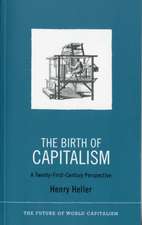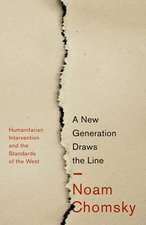Red Tape: Its Origins, Uses, and Abuses: A Brookings Classic
Autor Herbert Kaufman Cuvânt înainte de Philip K. Howarden Limba Engleză Paperback – 8 iun 2015
Death, taxes, and red tape. The inevitable trio no one can escape. That wry sense of reality colors Herbert Kaufman's classic study of red tape, the bureaucratic phenomenon that all of us have encountered in some form—from the confounding tax form filled out annually to the maddeningly time-consuming wait at the driver's license bureau.
The complaints about red tape, Kaufman concedes, are legion. It's messy, it takes too long, it lacks local knowledge, it is out of date, it makes insane demands, it increases costs, it slows progress. It is, in short, a burden and many times there is no measurable positive outcome.
Kaufman takes us on an unblinking tour of the dismal landscape of red tape. But he also shows us another side of red tape, one we often forget. Red tape is how government protects us from tainted food, shoddy products, and unfair labor practices. It guarantees a social safety net for the elderly, the disabled, children, veterans, and victims of natural disasters. One person's red tape is another person's protection.
This reissue is a Brookings Classic, a series of republished books for readers to revisit or discover, notable works by the Brookings Institution Press.
The complaints about red tape, Kaufman concedes, are legion. It's messy, it takes too long, it lacks local knowledge, it is out of date, it makes insane demands, it increases costs, it slows progress. It is, in short, a burden and many times there is no measurable positive outcome.
Kaufman takes us on an unblinking tour of the dismal landscape of red tape. But he also shows us another side of red tape, one we often forget. Red tape is how government protects us from tainted food, shoddy products, and unfair labor practices. It guarantees a social safety net for the elderly, the disabled, children, veterans, and victims of natural disasters. One person's red tape is another person's protection.
This reissue is a Brookings Classic, a series of republished books for readers to revisit or discover, notable works by the Brookings Institution Press.
Preț: 175.49 lei
Nou
Puncte Express: 263
Preț estimativ în valută:
33.58€ • 34.93$ • 27.73£
33.58€ • 34.93$ • 27.73£
Carte tipărită la comandă
Livrare economică 15-29 aprilie
Preluare comenzi: 021 569.72.76
Specificații
ISBN-13: 9780815726609
ISBN-10: 0815726600
Pagini: 100
Dimensiuni: 140 x 216 x 8 mm
Greutate: 0.14 kg
Editura: Brookings Institution Press
Colecția Brookings Institution Press
Seria A Brookings Classic
ISBN-10: 0815726600
Pagini: 100
Dimensiuni: 140 x 216 x 8 mm
Greutate: 0.14 kg
Editura: Brookings Institution Press
Colecția Brookings Institution Press
Seria A Brookings Classic
Descriere
Death, taxes, and red tape. The inevitable trio no one can escape. That wry sense of reality colors Herbert Kaufman's classic study of red tape, the bureaucratic phenomenon that all of us have encountered in some form—from the confounding tax form filled out annually to the maddeningly time-consuming wait at the driver's license bureau.
The complaints about red tape, Kaufman concedes, are legion. It's messy, it takes too long, it lacks local knowledge, it is out of date, it makes insane demands, it increases costs, it slows progress. It is, in short, a burden and many times there is no measurable positive outcome.
Kaufman takes us on an unblinking tour of the dismal landscape of red tape. But he also shows us another side of red tape, one we often forget. Red tape is how government protects us from tainted food, shoddy products, and unfair labor practices. It guarantees a social safety net for the elderly, the disabled, children, veterans, and victims of natural disasters. One person's red tape is another person's protection.
This reissue is a Brookings Classic, a series of republished books for readers to revisit or discover, notable works by the Brookings Institution Press.
The complaints about red tape, Kaufman concedes, are legion. It's messy, it takes too long, it lacks local knowledge, it is out of date, it makes insane demands, it increases costs, it slows progress. It is, in short, a burden and many times there is no measurable positive outcome.
Kaufman takes us on an unblinking tour of the dismal landscape of red tape. But he also shows us another side of red tape, one we often forget. Red tape is how government protects us from tainted food, shoddy products, and unfair labor practices. It guarantees a social safety net for the elderly, the disabled, children, veterans, and victims of natural disasters. One person's red tape is another person's protection.
This reissue is a Brookings Classic, a series of republished books for readers to revisit or discover, notable works by the Brookings Institution Press.



















